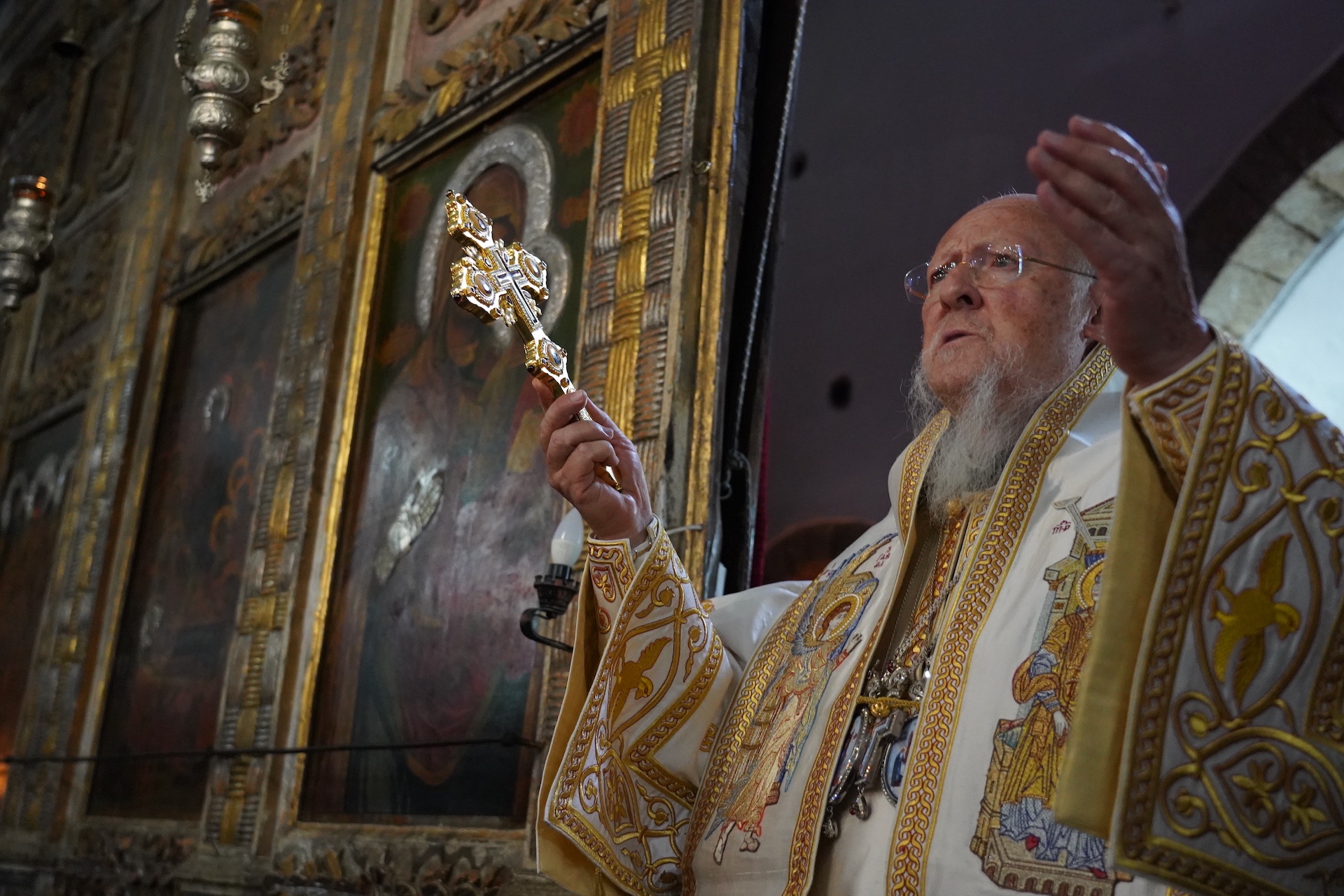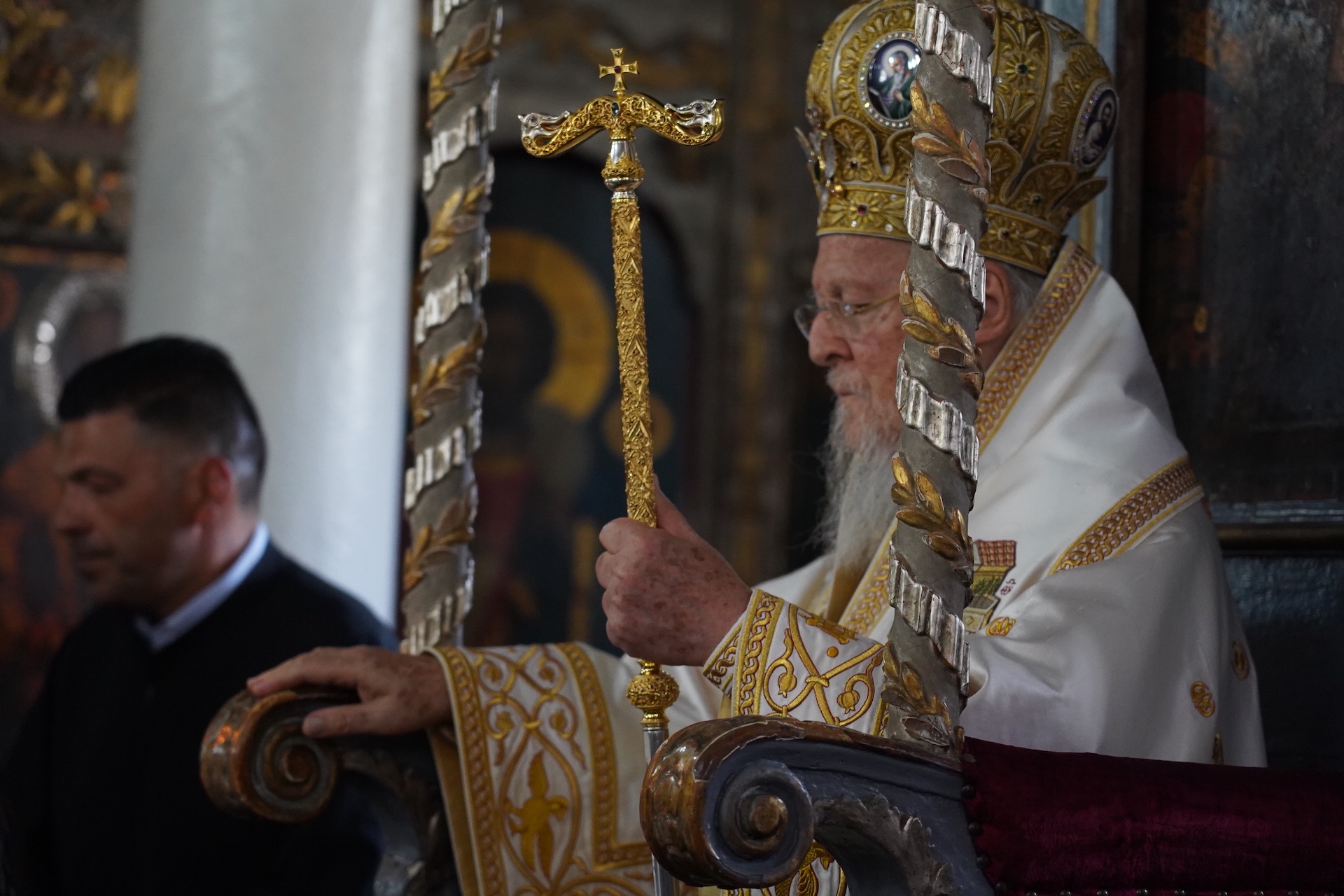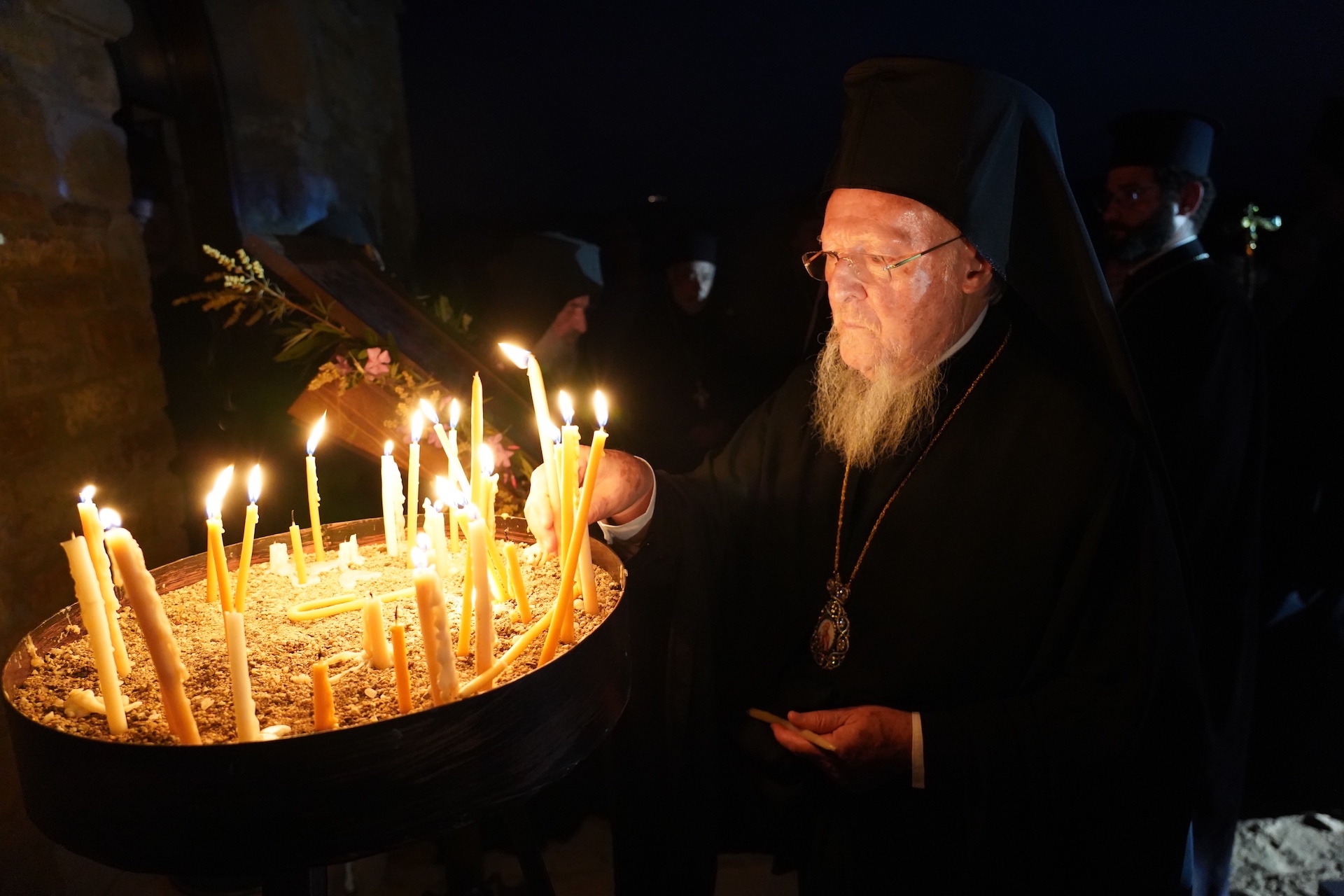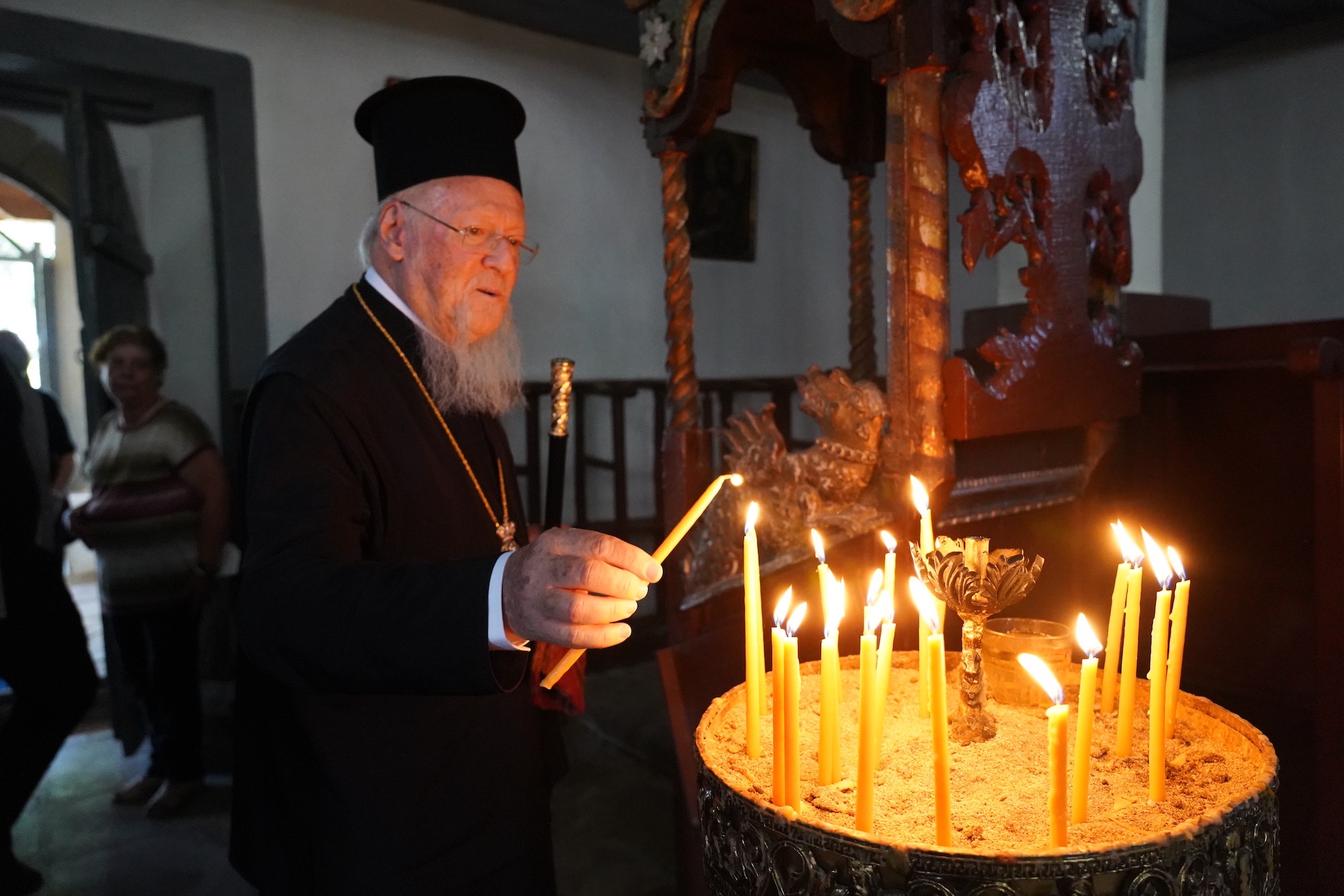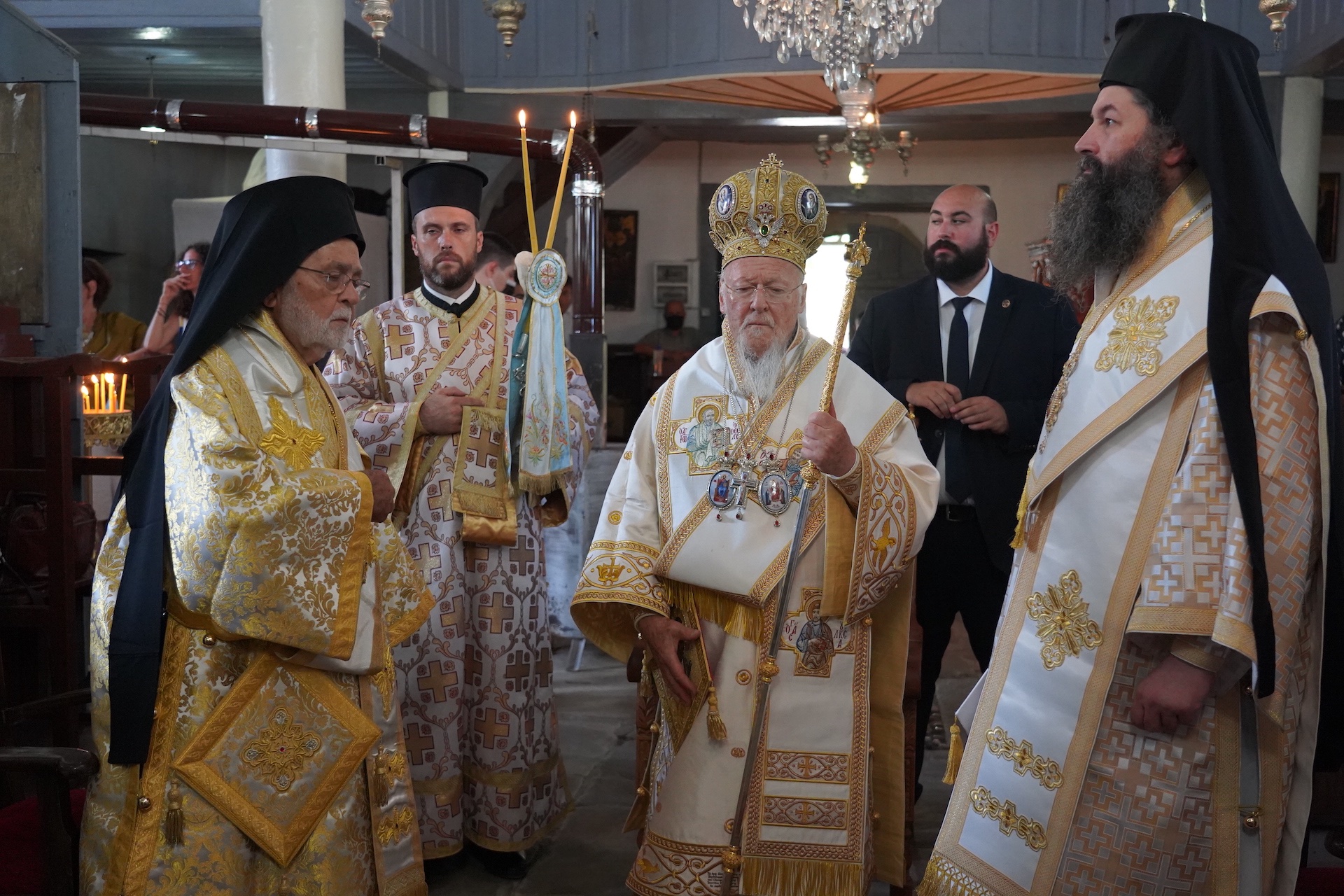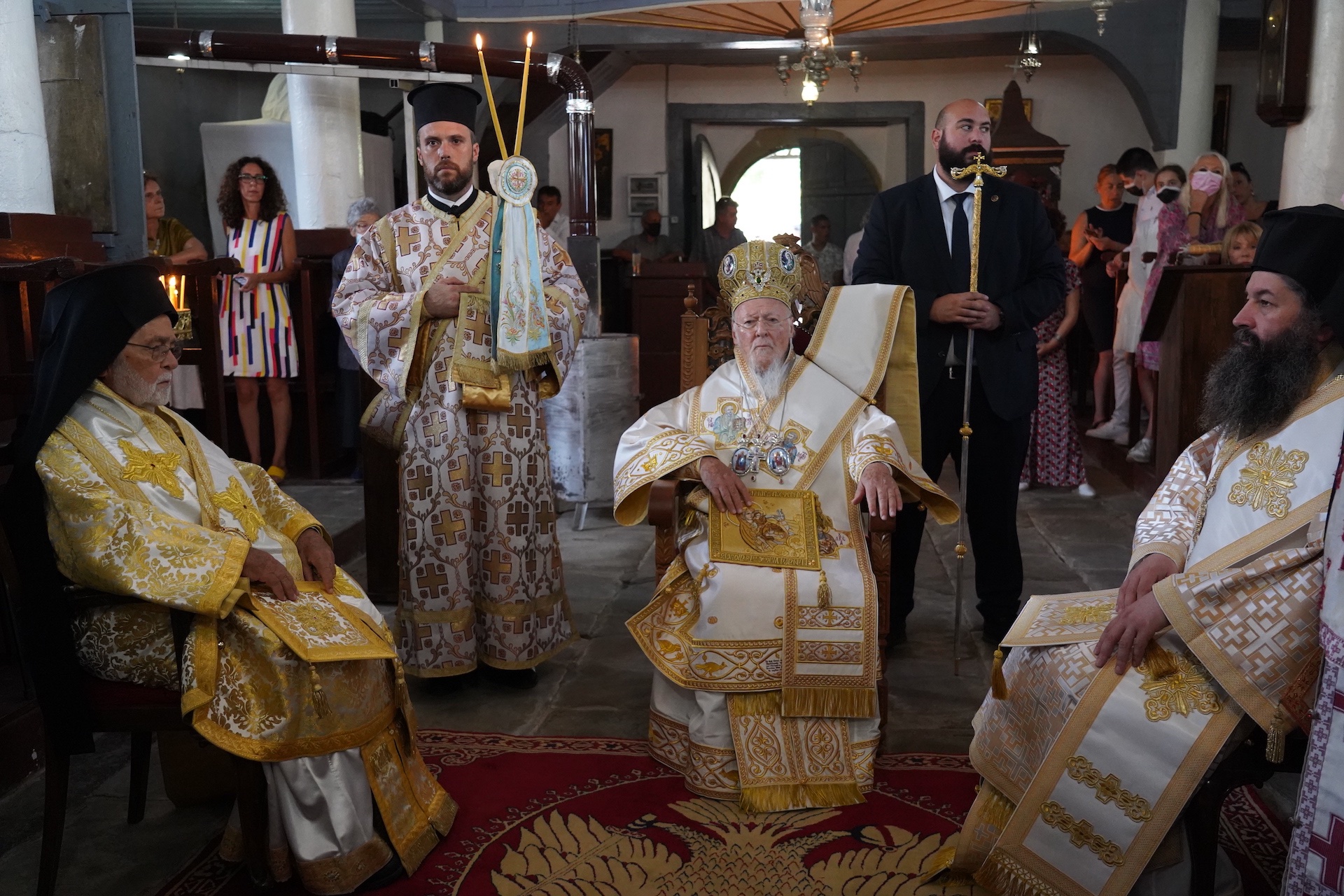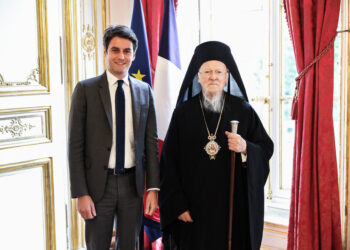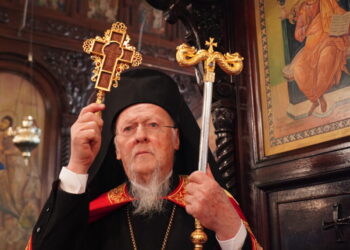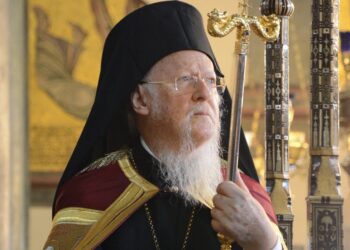The Ecumenical Patriarch Bartholomew presided over the Divine Liturgy at the Church of the Dormition of the Virgin Mary, in the village of Glyky, in Imbros, on Sunday, August 21, 2022.
Glyky is the place of origin of the late scholar Hieromonk Bartholomew Koutloumousianos, in the context of the honorary events held by the Holy Metropolis of Imbros and Tenedos on the occasion of the completion, this year, of 250 years since his birth.
The Ecumenical Patriarch presided over the service along with Metropolitan Chrysostomos of Myra and Bishop Raphael of Ilion. The Metropolitans Kyrillos of Moschonisia and Kyrillos of Imbros and Tenedos, Georgia Sultanopoulou, Consul General of Greece in Constantinople, Archons of the Offikalioi of the Great Church of Jesus Christ, Georgios Kosmidis, Coordinator of the World Confederation of Pan-Macedonian Associations, the Presidents and executives of the Imbrian Associations of Athens and Thessaloniki, and many faithful attended the service.
After the Divine Liturgy, the Metropolitan of Imbros and Tenedos thanked the Ecumenical Patriarch for putting under his patriarchal auspices the honorary events for the late Hieromonk Bartholomew Koutloumousianos, whom he characterized as a great figure of the Church, of Imbros and of the Nation as a whole.
The Ecumenical Patriarch spoke with emotion about Glyky and the old Church of the Dormition of the Theotokos, in which, as he said, “the people of Glyky testified their repentance and hopes, their joy and pain, celebrating the great days of our tradition. Here the important moments of their lives were blessed, here they drew strength for the struggle of survival and prosperity.” He also referred to the nearby Mount Athos dependency of the Pammegiston Taxiarches, which is linked to the life and history of the village.
“From this historical dependency began the educational history of Imbros, connected forever with the face of Bartholomew Koutloumousianos. Bartholomew believed in the power and breadth of education, the sacred mission of the teacher, and the children’s thirst for learning and knowledge. Everything he learned and knew he wanted to pass on to others, he was “born a teacher”.
His vision and effort to establish a school in Imbros, his obsession and persistence, despite the difficulties, and his confidence and faith in God, are also a symbol and a source of inspiration for us today.
In the face of Bartholomew, as aptly emphasized in the “Publication Note” of the last issue of the magazine “Imbros”, “the deep, unshakeable faith in God, the unquenchable love for Imbros, the ever-restless spirit and the unstoppable, stubborn effort to immerse man in the bastions of true education and all-round, Catholic cultivation” complement harmoniously.
At the school, which began to operate in the dependency of the Archangels, many young students from all the villages of Imbros were studying, who, “from this school, having received the first lights and expanding their studies more slowly and at a higher level of the external school, the first reformers emerged” (K. Christodoulides, “Glyki and Schinoudi.
The two pioneering milestones in the spiritual and external movement of Imbros”, Album of the island of Imbros, 1938, p. 132). This course, which produced much fruit, after the educational spring during the pastoral period of Metropolitan Meliton of Imbros and Tenedos, was forcibly interrupted in 1964.”
The Ecumenical Patriarch continued by urging his compatriots, and especially the new generation, to remain united and to contribute to the joint effort for Imbros.
“For this course to continue, all of us, all Imbrians, first of all, the new generation, here and everywhere, must contribute united and strong. There is no alibi for not participating in this effort. We must not allow any of our other villages to follow the fate of the castle. In 1964, Glyky bore the brunt of the tragic consequences of the “Dissolution Program”. It must preserve its historical character, to continue the presence of the expatriates here.
We thank the few people of Glyky who did not leave their village in the stone years, kept their church open, guarded the tombs of the ancestors, and rescued Glykis from being occupied, such as the neighboring old capital and seat of the Metropolis, the Castle. Without them, there would be no old Iberian here today.
We also thank, in the name of all the Imbrians, and recognize the contribution of all those of our compatriots who were forced to emigrate, but kept the love for the island within them, created active unions that fought for our rights and conveyed to the new generation of Imbrians our values and traditions.
As I have said before, the “Dissolution Program” of 1964 did not dissolve the soul of the Imbrians, it did not alter our identity. Rather, the great ordeal served as a source of alertness and determination to save our personality.”
In concluding his speech, he congratulated the Metropolitan of Imbros and Tenedos on the initiative of organizing the “Year of Bartholomew Koutloumousianos of Imbros” and on the anniversary events. He also expressed his patriarchal gratitude to Archimandrite Grigorios Grigoriadis for his contribution to the Parish of the Dormition of the Virgin Mary of Glyky, and thanked all those who participated “in the anniversary events in honor of the blessed son of Imbros Bartholomew Koutloumousianos and to highlight his invaluable contribution to his birthplace, the Church, the education and the Nation.”
The Ecumenical Patriarch at the Holy Vigil in Koutloumousianos Metochion
On Saturday night, the Ecumenical Patriarch officiated the Vigil service at the restored katholikon of the old Koutloumousian Metochion.
The Metropolitan of Imbros and Tenedos, the Bishop of Ilion, the Consul General of Greece in Constantinople, and a number of Imbrians attended the service. In his speech, he highlighted the relationship of Imbros with Mount Athos, through the four Athonite dependencies that existed on the island, but also in the work and the overall contribution of Bartholomew Koutloumousianos.
Photos: Nikos Papachristou / Ecumenical Patriarchate


